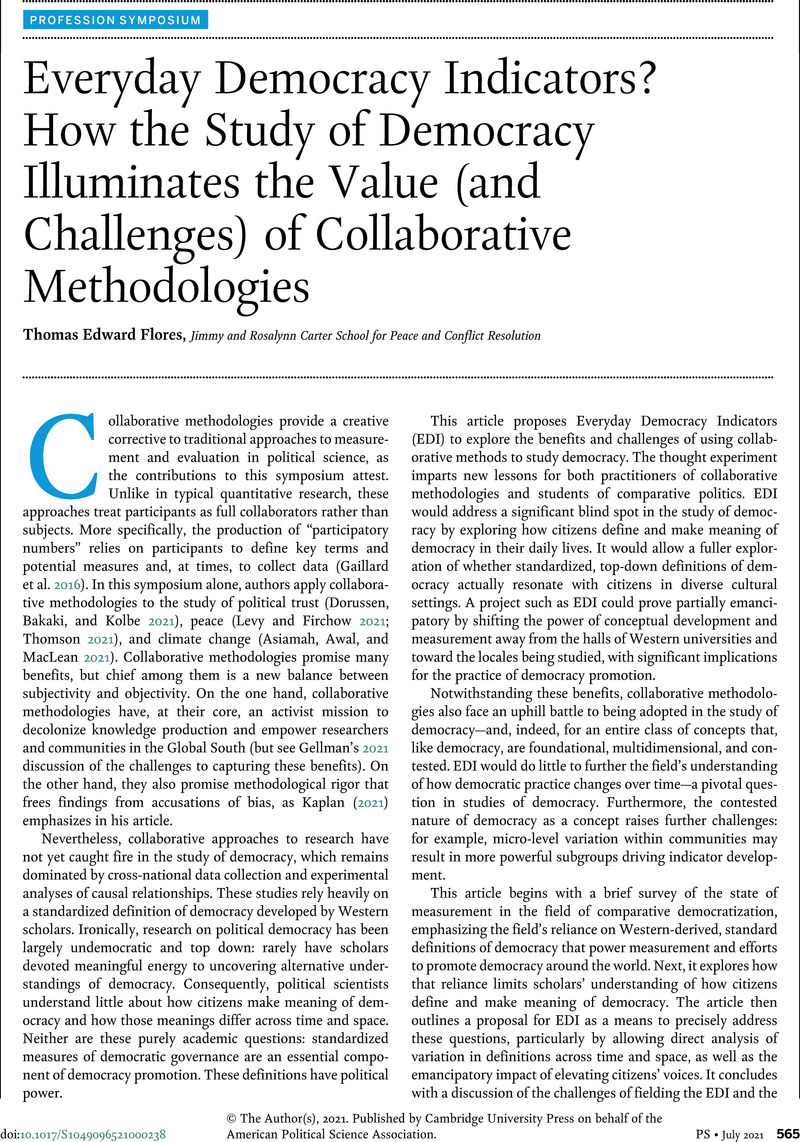Crossref Citations
This article has been cited by the following publications. This list is generated based on data provided by Crossref.
Dorussen, Han
Bakaki, Zorzeta
and
Kolbe, Athena R.
2021.
Challenges of Using Collaborative Methodologies in Surveying Political Trust in Haiti.
PS: Political Science & Politics,
Vol. 54,
Issue. 3,
p.
570.
Mitra, Ankushi
Kline, Curtis
and
Bautista-Chavez, Angie M.
2024.
Civically engaged research in political science: a methodological guide.
Politics, Groups, and Identities,
p.
1.



